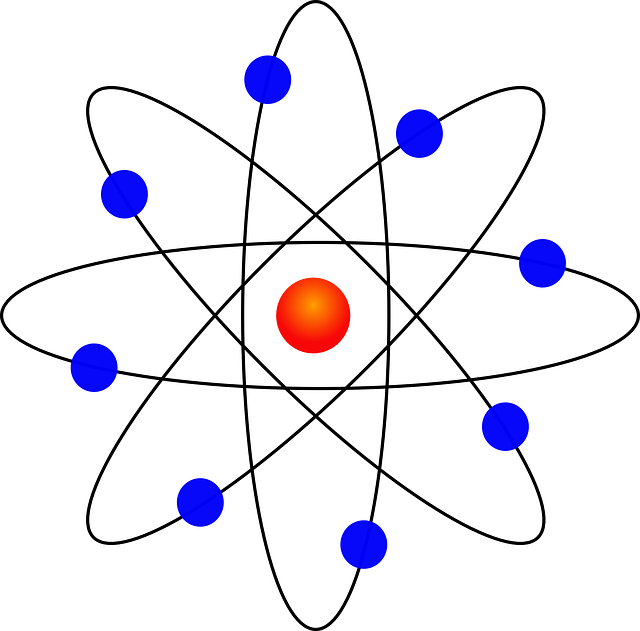Does Science Have All The Answers?
Science has always been one of my favorite subjects. Knowing how things work and why things are the way they are only increases my wonder of the world around me. If you think about it, we start “doing science” as soon as we are born by playing in our environment. We learn that crying gets people’s attention. We learn that if we drop something, it will fall. And, if we toss in some crying, our parents will pick it up for us.
Each stage of development involves testing things out in our natural world to learn more about it. For example, we learn that if we kick a ball gently, it doesn’t go as far as if we kick it really hard. Early on, we may not know why some things are how they are, but we learn a lot about cause and effect.
Once we get into school, we start to be taught “the why”. We learn the reason things fall to the ground when we drop them is due to gravity. We learn that the force we kick something with, and how heavy the object is, will determine how far the ball will go when we kick it. We learn that the physical stuff we see, touch, and interact with is made up of smaller stuff we can’t see without a microscope. And those smaller things are made up of smaller things. We start mixing fluids together to make stuff happen and see repeatable results.
The difference between this learning, and the learning we did as small children, is now we are applying processes and methods. We start with a theory, we design an experiment, we run the experiment, and record the results. Then we interpret those results to come to a conclusion. According to writer Thomas Burnett science can then be defined as “an activity that seeks to explore the natural world using well-established, clearly delineated methods”. We use science to understand how the natural world around us works.
The amount of knowledge that science has given us about our natural world is undeniable. Diseases have been cured. Medicine keeps us living longer and healthier with each passing generation. We can travel between two points on the globe in a matter of hours when it used to take days, months, or even years. Science has certainly played a major role in the advancement of humanity.
Can Science Give Us All Of The Answers?
The scientific method is a powerful tool that has led to many discoveries about the universe around us. But, can it ultimately answer all of our questions? Some people think so. The worldview that says our ultimate reality and meaning of life can be discovered by science is called scientism. People who hold this view say they only believe in what can be verified by science and the scientific method. If you can’t prove it, it doesn’t exist. If you hear people say something like “I only believe what science can tell me” or “I only believe what can be seen, heard, smelled or tasted”, then they are holding to a scientism worldview. In his book The Magic of Reality: How We Know What’s Really True, Richard Dawkins expresses his belief in scientism in this way:
We come to know what is real, then, in one of three ways. We can detect it directly, using our five senses; or indirectly, using our senses aided by special instruments such as telescopes and microscopes; or even more indirectly, by creating models of what might be real and then testing those models to see whether they successfully predict things that we can see (or hear, etc.), with or without the aid of instruments. Ultimately, it always comes back to our senses, one way or another
So, can science explain everything? If we just wait long enough until the next piece of technology is created, will science provide us with all the answers we seek? The issue at hand here is epistemology; how we come to know something. Is the scientific method and scientific research the only way we can come to know truth? Or does it lack the ability to explain certain things?
Science Cannot Account For All Knowledge
In a debate between William Lane Craig and Dr. Peter Atkins, Dr. Craig outlines at least five things that science cannot prove
- logical and mathematical truth – science presupposes math and logic, meaning you have to accept mathematical logic to even begin to do science. You can’t prove 1. You have to accept that this thing called “one” exists in order to do math. Simply pointing to a single apple and saying “that’s 1” isn’t good enough, because the single apple is just a physical representation of 1. It’s not the actual abstract thing that is 1.
- metaphysical truth – there is more to reality than the things we can experience with our senses. I have a mind, but I cannot know through my senses that anyone else has a mind.
- ethical beliefs – science can’t prove that any action is evil and another is good. Science may be able to tell us what is beneficial in certain circumstances – like pruning a plant to make it grow fuller. But do the same principles apply to all species of life? Science cannot determine if the Nazi experimentation on humans was good or evil. The Nazi scientists felt what they were doing was advancing the human race, and therefore good. Also, you can’t use the scientific method to prove that scientific results need to be reported accurately. This is an ethical judgement.
- aesthetics – there is no scientific test to determine what is beautiful or pleasing.
- science itself – there is no scientific proof that can be applied to prove the claim that we should only believe what science can prove. That would be arguing in a circle. In other words, you can’t prove with science that science can prove everything. Science is full of presuppositions that we have to assume to do science in the first place. For example, Einstein’s Theory of Relativity is based primarily on the assumption that the speed of light in one direction between two points is constant. We can’t prove that statement – we just have to hold to it that it’s true or the whole theory doesn’t work. Dawkins makes a claim in the passage above on how we come to know things. However, this claim cannot be proven by some scientific test. In other words, making the statement that we should only trust what can be empirically verified through science is something that can’t be empirically verified through science. It is a philosophical claim.
So why has popular culture latched onto the view of scientism? If science can’t tell us everything then why do people continue to prop it up as the Ultimate Purveyor of Truth? In my next article, I will explore a little deeper why scientism has become such a popular world view in today’s culture.
Share This Story, Choose Your Platform!
latest video
news via inbox
Nulla turp dis cursus. Integer liberos euismod pretium faucibua








This article is really great and true because you really can’t prove everything with science. So you can’t force people to prove their faith or belief in God with science. Having faith doesn’t require you to show proof of science to prove Christianity.
HI Ethel,
Indeed. The only things we can really prove are mathematical equations. Everything else, we have to use our powers of reason to come to the conclusion that makes the most sense.